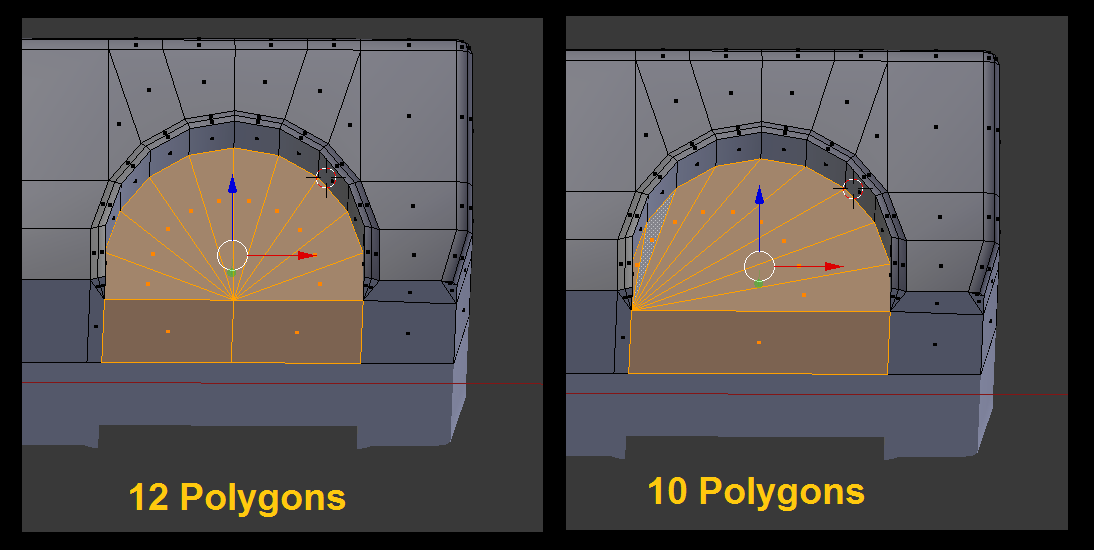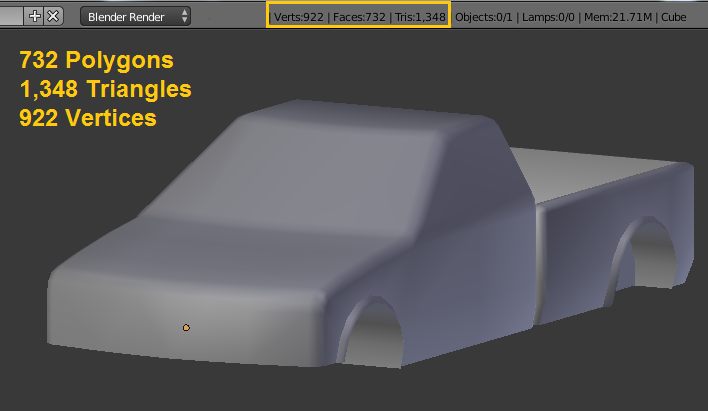Adding details
As we build our model, it's generally good practice to use as few polygons and vertices as possible. However, you may sometimes decide that it isn't worth it. For instance, you can technically save two polygons by filling in the fender area in a nonstandard way:

This tends to look a bit messy, though, and can sometimes make it difficult to see how meshes are put together. You'll have to decide how important polygon efficiency is for your application. In this case, I don't feel that saving two polygons is worth it. The final truck is around 5,000 polygons (as mentioned before), so we're talking about less than a 1% decrease in efficiency here (0.04%, actually).
At this point, we've completed the basic shape of our truck body. You can see where we're at in terms of polygons and vertices.

One thing we haven't really discussed yet is triangles. We've talked about using triangular faces ("Tris"), but that leads us to a larger point. The reality (at least in most programs) is that...
























































